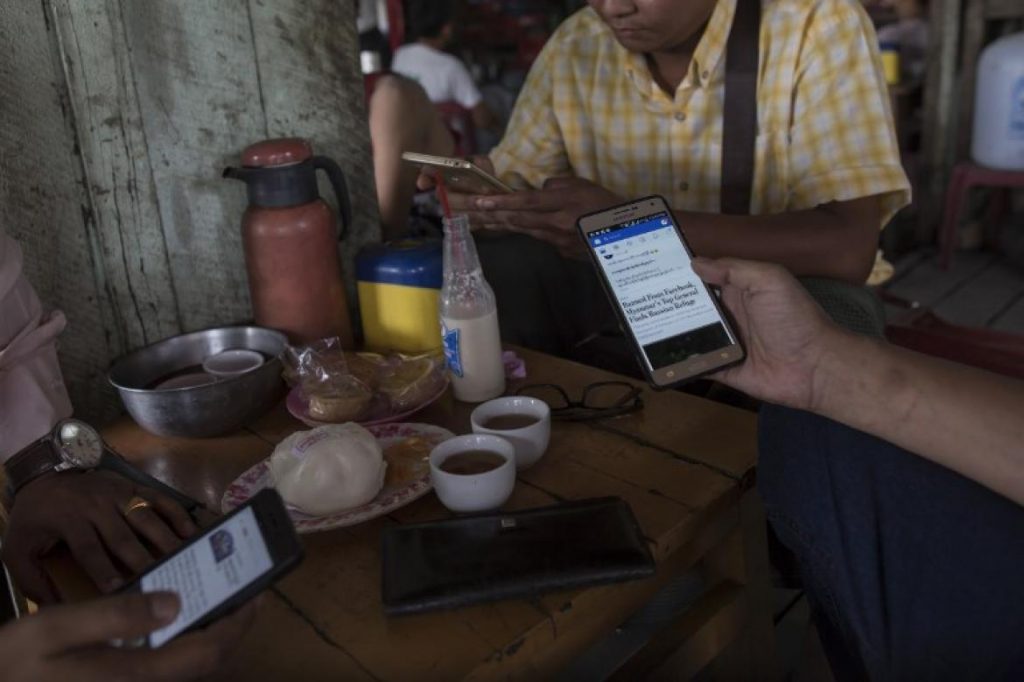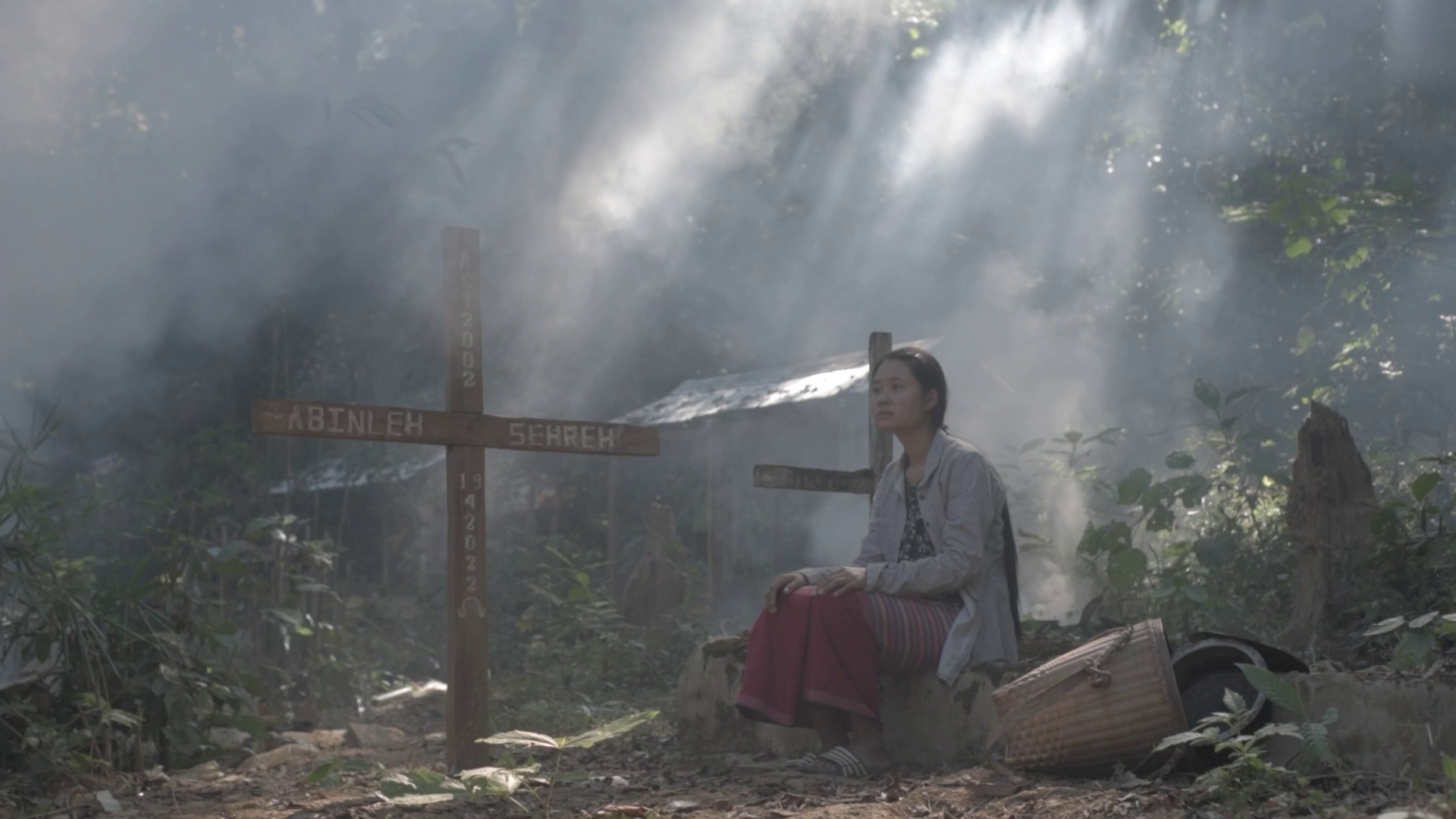By FRONTIER
YANGON — Internet freedom in Myanmar has continued to decline under the National League for Democracy government, says the latest report from watchdog group, Freedom House.
Its Freedom on the Net 2018 report for the 12 months from June 1 last year gives Myanmar an overall internet freedom rating of 64 – with 100 meaning least free – down from 63 for the previous reporting period.
Myanmar rated 30 out of a possible 40 points for violations of user rights (down from 29 in 2016-2017), 19 out of 35 points for limits on content (down from 17) and 15 out of 25 for obstacles to access (up from 17).
Freedom House, which has campaigned for democracy and human rights since it was formed in New York in 1941, said a positive development was greater internet access in Myanmar after another three telecoms operators entered the market in 2018: Mytel, Amara Communications, and Global Technology Group.
Support more independent journalism like this. Sign up to be a Frontier member.
The report also listed four other key developments during the reporting period.
It said there was less diversity in content available online “as the government and military continue to spread propaganda to further entrench the state narrative about the Rohingya crisis”, increased intimidation of online activists and journalists especially those reporting on Rakhine State, Facebook’s “opaque” blocking and filtering process with limited, if any, avenue for appeal, and the government’s establishment of a Social Media Monitoring Team.
It said the SMMT, established in February 2018 on the order of the President’s Office and approved by the Hluttaw without prior consultation, was immediately and widely criticised by civil society as an unworkable system of state surveillance.
The report noted that the government originally said SMMT was needed to target those causing instability online.
“Public statements have since clarified that the SMMT’s mandate is narrowly focused on targeting foreigners and foreign organizations that ‘interfere’ with, ‘incite unrest’, and infringe on the country’s sovereignty,” it said.
“It has been suggested, given Myanmar’s broader political context, that the SMMT was established to provide surveillance on foreign activists (which include activists from Myanmar who lack citizenship status), foreign media outlets, and international organizations communicating on issues relating to the Rohingya, and, to a lesser extent, the other conflicts inside the country, as well as the growing campaigns for justice such as the ICC [International Criminal Court],” it added.
It said SMMT received an initial allocation of about US$4.8 million that was reportedly used to buy surveillance technology, but the government had refused, citing security reasons, to say from which country the equipment was acquired.
“No information has been shared regarding the SMMT’s powers and responsibilities, relationship with law enforcement and the courts, and any potential safeguards such as independent judicial oversight,” Freedom House said.
The report said the criminalisation of internet users had persisted, despite the government’s partial amendment of section 66(d) of the 2013 Telecommunications Law, which had been condemned as “insufficient”.
The prosecution of online users under the law was common in Myanmar’s restrictive online environment, it said.
“Trials relating to online activity commonly include significant procedural errors, technically unreliable evidence, and deep-seated judicial unwillingness to consult expert testimony,” it said.
“Other procedural issues include the lack of skills and knowledge among judges, arbitrary use of bail, lack of access to justice for marginalized communities, and the influence and interference from the Ministry of Information.”
On intimidation and violence, the report said online journalists, human rights defenders and political activists continue to be targeted.
It cited a survey published in May that found most journalists believed violence has risen over the previous year. Violence and threats of violence were particularly common for journalists and activists reporting in conflict areas or communicating online about sensitive political issues, including the Rohingya crisis.
The scale and volume of threats against human rights defenders, all of whom use the internet as their principal tool for advocacy, varied according to the issue.
“Pro-Rohingya and peace activists report some of the most significant and constant intimidation via direct and indirect messages and comments online,” the report said.
High-profile women and women human rights defenders also reported regular gender-based intimidation and threats of violence, including the use of knowingly false information, such as doctored sexual or intimate images.
A significant number of people in Myanmar had also reported cyber-bullying, particularly those from marginalised groups, including young women, religious minorities and the LGBT community, the report said.
On another issue, the report said websites, Facebook accounts and email were periodically subject to technical attacks, including hacking and spyware installed on mobile phones.
It also noted that Microsoft had raised concern about the proportion of computers and devices in Myanmar infected by viruses and malware.
“Over 22 percent of computers in Myanmar are infected, compared to 8 percent globally,” it said.







